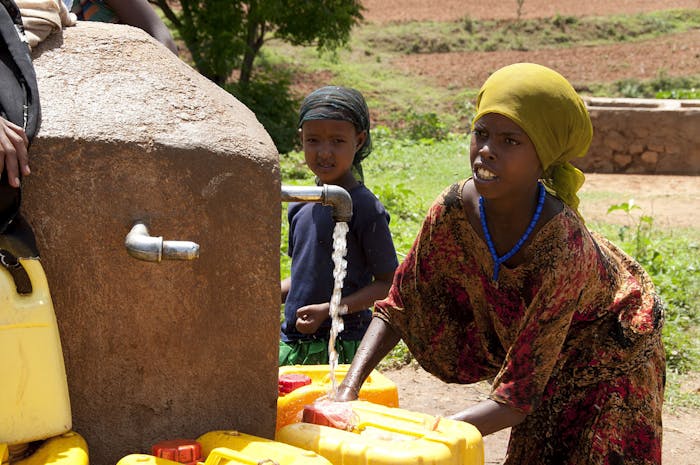Tackling water challenges with mobile software and web tools
Two villagers are sitting side by side on the waterfront. They shake a test-tube which they have just filled with water and click the sample onto a photometer which is connected to their smartphone. Within half an hour, they see via the app that the water is clean enough to drink. This is huge progress. In the past, a bottle with a water sample would be transported in a hot car for hours, and the results would only arrive days later. What’s more, the GPS system on the phone of these data collectors shows the exact location where this sample in Mali was taken, and data on the substances found in the water is also saved and shared so that everyone in the area can make use of it.
In more than twenty countries, Akvo provides partners with the software and process-support to collect water quality data with smartphones. The number of inhabitants with Android smartphones in many sub-Saharan countries is growing, leading to numerous possibilities for data-driven development. That’s why Akvo, together with relief and development aid organisations and local governments, focuses on using the latest technology to gather information about the water situation. The importance of data for development is not yet fully exploited. So what is Akvo’s wish? For every organisation that operates in water governance to have a sound data strategy at management level and for data to be used sustainably. This offers a promising future.

 06 Clean Water and Sanitation
06 Clean Water and Sanitation